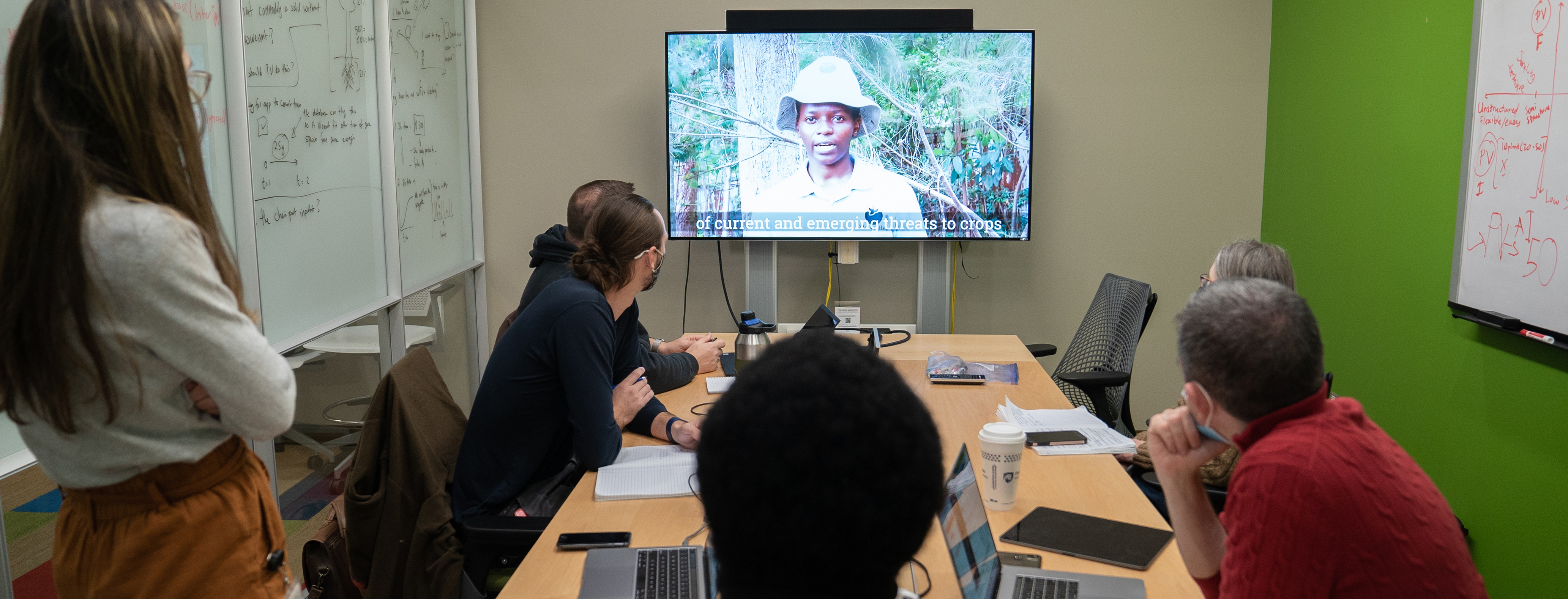What is Catalysis?
The Huck Catalysis Program at Penn State's Huck Institutes of the Life Sciences (Huck C) fosters interdisciplinary research collaboration across various disciplines, schools, and campuses. Traditionally centered on life scientists, engineers, and medical researchers, Huck C now increasingly includes collaborations with social scientists, humanists, and experts in public health, social work, policymaking, and education.
Huck C is meant to expand Penn State’s research portfolio of complex, interdisciplinary, and multi-PI proposals for extramural funding. Using this service is optional. Huck C is overseen by Huck Associate Director Camelia Kantor and supported by Project Manager Brittany Grimes. Please contact Brittany Grimes to inquire about services.
Faculty willing to lead such applications may contact the Huck Strategic Initiatives team for guidance, support, project management, and evaluation services. We collaborate closely with the Penn State Strategic Interdisciplinary Research Office (SIRO), which will serve as the research proposal development and submission office for all these proposals.
Huck C supports efforts to secure external funding for these collaborations. It also administers seed funds for early-stage research that extends beyond traditional boundaries and could be further leveraged for these initiatives. Huck C also plays a crucial role in planning and building research infrastructure, leveraging resources like the Huck Core Facilities, Huck Graduate Programs, our Institutes and Centers, and other specialized initiatives.
In a nutshell, what can we do for you?
The following are some examples of provided support for large, complex grant proposals in the past. Please note, Huck C will not typically offer all of these for each proposal:
- High-level guidance, including project conceptualization
- Course buyout (one semester with unit match)
- Funding to hire a technical editor—also partial support from SIRO
- Access to a graphic artist or paid design license—(also partially available through SIRO).
- Jointly sponsor a site visit (with unit match)
- Budget set-up advice and reviews (SIRO will create the budget)
- Working with PI and unit to find space for the project (including designing potential space for the proposals’ facilities document)
- Marketing and communications support (e.g., create a logo for the proposed Center, a short video for the reverse site visit)
- Meetings scheduling support
- Mentorship and guidance on the development of the complete package, sense-making
- Internal Red Team reviews and feedback
- Examples of grant text from successful proposals and boilerplate text
- Help with forming and engaging the teams, internal and external
- Contacts and connections with potential collaborators
- Mentorship on organizational governance, strategies, and management
- Post-submission organization of reverse site visits, including IT services, space allocation, scheduling, development of short videos, interactive presentations, etc
- Additional support and guidance
We also act as advocates and liaisons where the senior personnel team or SIRO cannot get support or traction from partners.
Contact the Huck Strategic Initiatives team with a request for support.

